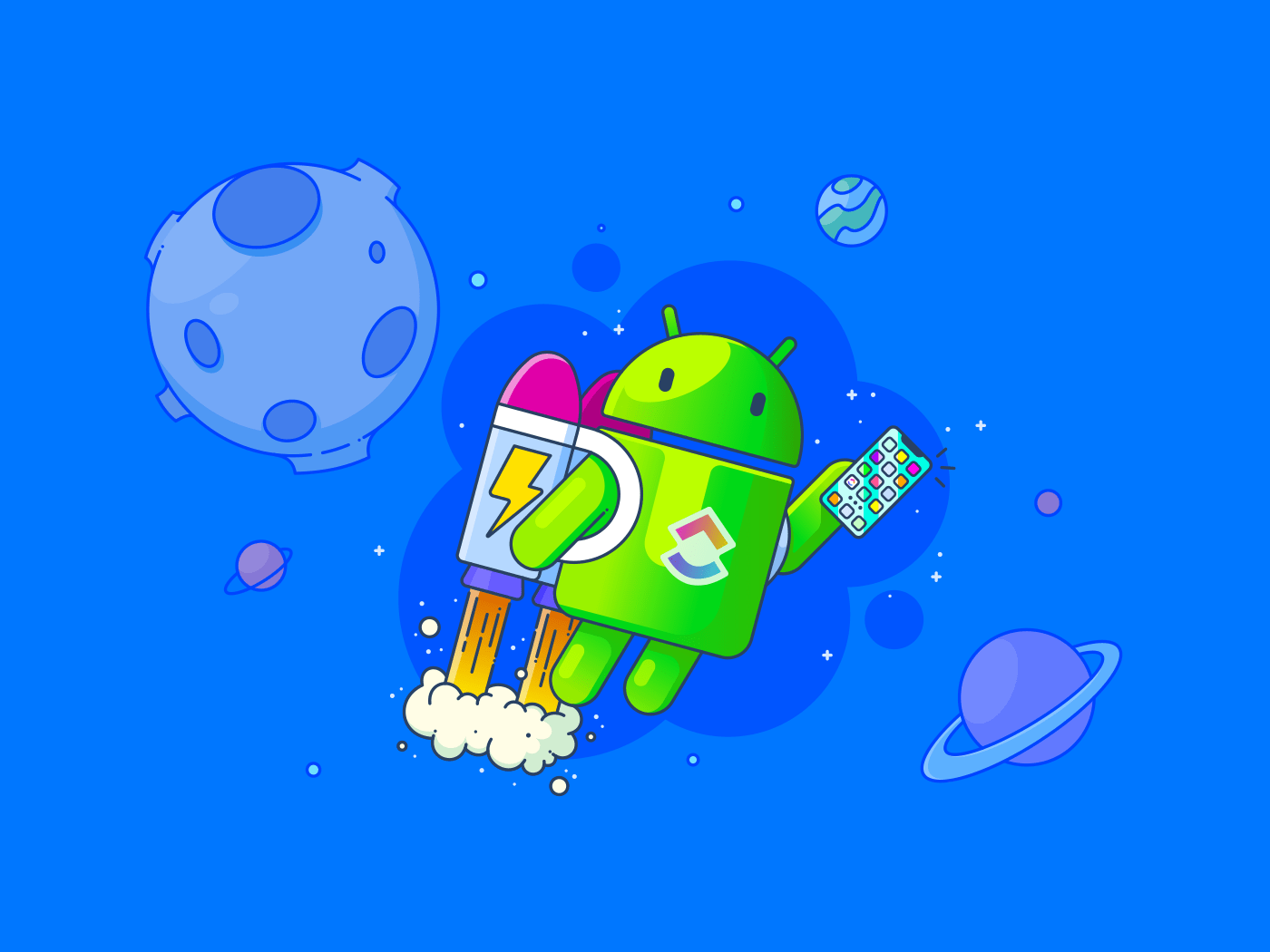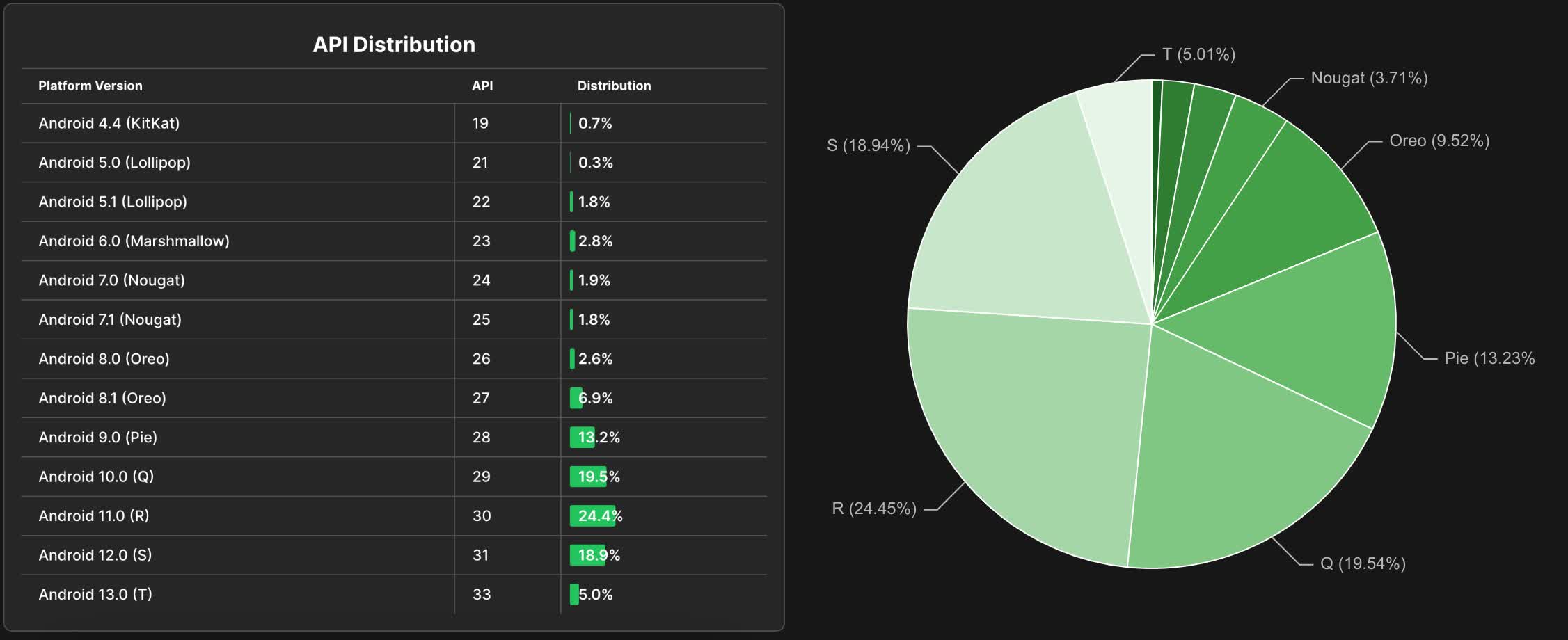Editor's take: Android is a hot mess. Google should make it truly open source. This would relieve them of a major antitrust vulnerability and infuse a massive amount of energy to the project.

We have been writing a lot about Qualcomm lately, lamenting its lackluster growth prospects. As we noted, the heart of their problem is that they are (probably) losing Apple as a customer, and at the same time Apple seems unstoppable, gaining share seemingly everywhere.
Put differently, Qualcomm's problem is Android.
Android is not in good shape. After 16 years on the market, Android remains heavily fragmented. This requires developers to build hundreds of versions of their app, and consumers face a bewildering array of user interfaces. Developers are deeply frustrated by this.
Editor's Note:
Guest author Jonathan Goldberg is the founder of D2D Advisory, a multi-functional consulting firm. Jonathan has developed growth strategies and alliances for companies in the mobile, networking, gaming, and software industries.
We know many software developers who insist on using an Android phone out of principle, but their green message bubbles stand out as exceptions. Consumers, especially young consumers (a.k.a. customers of the future) prefer iOS by wide margins. The result is that iOS users monetize for app developers much, much better than Android users, causing many to eschew the platform altogether.
For handset makers, the problems are painful. They are stuck in a situation where they have little leeway to differentiate on top of a free operating system, and many of their attempts to do so just add to the fragmentation problem. One of the only levers left to them is to cut prices, with ASPs (application service providers) shrinking in most markets. And while they are attempting to launch higher priced phones, with $2,000 models on the way, these are expensive to build and unlikely to sell enough to shift market share figures by much. And so Apple continues to suck up the vast majority of the sector's profits.
Most importantly, Android's owner, Google, seems deeply ambivalent about their OS. They have made no real effort to fix the root problems – especially around fragmentation, security and privacy. They are not exactly doing nothing. They have invented a lot of tools to make writing code for Android apps, and the web, easier. But this is Google we are talking about, and they sometimes seem to have the attention span of a toddler who probably needs a Ritalin prescription.
Android version distribution chart
Source: Google / Composables. Updated: January 2023
For many years, they even seemed to be building an alternative OS, Fuschia, but that seems to have ended with their recent jobs cuts. And let's not forget their Chrome operating system which is fairly successful in cheap laptops, but also could use some focused attention. Google knows they need Android, and … well, that really seems to be it. Too important to abandon, not important enough to really focus on and fix.
The rest of the world sees the problem but either lacks the ability to build a real alternative or has resigned themselves to tinkering around the edges. We recently spoke to a major ecosystem stakeholder looking for a way forward but the only options they had identified looked either futile (get all the handset vendors to work together) or just more tinkering around the edges.
We think there is an easy solution to all of this. A glaringly obvious one, written in giant blue letters with a neon purple outline. Google should make Android truly open source. Not the half measure Android Open Source Project (AOSP) they have today, but completely spun off into its own foundation, or ceded to the fine folks at the Linux Foundation.
Obviously this might cause some anxiety at Google. Android was created to prevent them from getting shut out of the mobile search market. So they have to be worried that losing control of Android would cause that to happen. But we think that is an outdated model.
Google could still cut deals with the handset makers to keep Google as the Android default search engine, just as they do with Apple. This would be expensive, but not as expensive as the billions they pay Apple every year. The handset makers would still want to license Google Apps (the G-Suite, Mail, Maps, etc.) and Google would not lose their ability to influence the code.
Google could also worry that every Android licensee would create their own version of the OS confounding users. Oh wait, we have that already.

Every major open source project relies heavily on corporates contributing significant engineering time. Linux was built with a very large time contribution from Intel. Google could easily emulate this model. Google could also worry that every Android licensee would create their own version of the OS confounding users. Oh wait, we have that already.
Google would also rightly worry that changing privacy policies (not least Apple's App Tracking Transparency) make internal traffic much more strategic to company's dependent on advertising. While this is a legitimate concern, we imagine Google could take steps to ensure their needs are met on this front. Most importantly, by relinquishing control of Android, Google could remove a very large antitrust vulnerability. Scan the many regulatory cases against Google and Android is at the heart of many of them.
An open source Android would likely enjoy a massive infusion of energy and resources from the rest of the ecosystem. The handset makers and chip suppliers would all have a large incentive to contribute to the project. Maintaining an OS is expensive, even for a company of Google's size. Why not defray those costs to some of the other highly-motivated members of the Android Foundation. Done well, this could also lead to significant improvements in many of the technical issues, fragmentation and security at the top.
This seems the best, if not only, way to save Android. Both, improving its codebase and keeping any one company from dominating it. No doubt, Google would only take this step with immense trepidation, but at this point we see few other options and many, many reasons to adopt it.
{poll id:4}
Masthead credit: majamaki
https://www.techspot.com/news/98093-does-android-need-saving-if-yes-here-how.html
